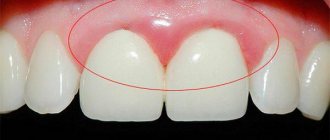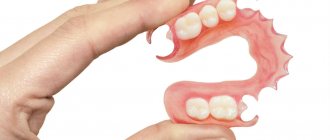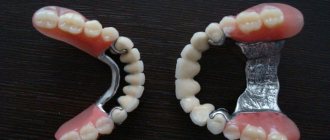It is no secret that calcium is necessary for the formation of bone and dental tissue. In this regard, a completely logical question arises: is it possible to consume additional calcium to strengthen teeth? Dentists unanimously state that during the formation of teeth (and this is during childhood), this macronutrient is extremely necessary, but in adults calcium will not be able to improve their condition. To strengthen tooth enamel, special dental procedures are recommended for adults. In St. Petersburg they are carried out by specialists from Nurimed dentistry. You can make an appointment with a doctor by calling.
What does calcium do for the body?
Micro- and macroelements are necessary for the body for the full functioning of organs and systems. Beneficial features:
- Affects blood clotting, helping to form a blood clot to block tissue rupture.
- Takes part in the process of muscle contractility and excitability of nerve fibers.
- Blocks the absorption of saturated fats in the digestive tract, thereby preventing the deposition of harmful cholesterol.
- Contained in cellular and tissue fluids.
- It is part of the membrane and nucleus of cells and affects the permeability of the membrane.
- Failure of calcium concentration in the blood leads to disruption of the endocrine, pancreas and gonads, adrenal glands and pituitary gland. The element is involved in the activity of these organs.
The body should be enriched with calcium and other beneficial substances daily. This will avoid the development of pathologies and complications.
Doppelhertz Active Magnesium+Calcium+D3
This calcium preparation is presented in the form of carbonate, available in the form of effervescent tablets, and is prescribed from the age of 14. “Doppelhertz Active Magnesium + Calcium + D3” is suitable for adults and adolescents, improves overall well-being, and perfectly replenishes calcium deficiency in the body. Effervescent tablets are well absorbed and practically do not irritate the gastric mucosa. In addition to calcium, the complex contains vitamin D3, which is responsible for the absorption of macronutrients, as well as magnesium, a building material for bones, which also has a positive effect on the cardiovascular system. “Doppelhertz Active Magnesium + Calcium + D3” improves sleep, calms the nervous system, improves memory, gives a surge of energy and stimulates metabolism.
Doppelhertz Active Magnesium+Calcium+D3
Queisser Pharma, Germany
An additional source of vitamins D3, B2, magnesium, calcium.
from 41
5.0 1 review
219
- Like
- Write a review
When should you start taking calcium?
The supplement is prescribed for the prevention of various diseases, an increase in the need for the element, and a lack of absorption. Lack of the substance causes kidney disease, hypertension, and intestinal malabsorption. The main causes of hypocalcemia in the body:
- unbalanced diet;
- following strict diets;
- chronic pancreatitis;
- long bed rest;
- lack of vitamin D;
- kidney diseases;
- dysfunction of the thyroid and parathyroid glands;
- excess iron, zinc, phosphorus, sodium, lead, magnesium;
- dysbacteriosis;
- candidiasis;
- food allergies;
- long-term use of diuretics and laxatives.
Those at risk include the elderly, children, teenagers, and pregnant or breastfeeding women. At this age and condition, macronutrient consumption increases sharply.
The role of calcium in the life of a pregnant woman
The body of the expectant mother while carrying a child needs minerals and vitamins. Pregnant women are often diagnosed with a lack of this microelement, which is responsible for the condition of teeth, bones, hair, muscles, and the formation of the cardiac and nervous systems. The element is involved in the development of all tissues and organs of the baby.
VITAMINS AND MINERALS FOR YOUR TEETH HEALTH
The body receives the necessary substances from various foods. It is not always possible to diversify the menu enough to saturate all cells and tissues with valuable elements. The lack of nutrients makes the tooth and gum tissue weaker and worsens the condition of the oral cavity. Vitamins for teeth and gums are an excellent solution for people who want to maintain oral health.
A sufficient supply of valuable microelements and vitamins is the key to the normal functioning of the body. The lack of one or another component quickly affects the density of the gums and the strength of the teeth.
If you don't take timely measures, if your gums bleed, you can get a more serious illness, and bad breath can also indicate some diseases. Such seemingly small problems can even cause tooth loss. Not everyone knows that many dental diseases begin due to a lack of vitamins. In order not to subsequently experience discomfort from toothache, you need to be able to recognize which vitamin is missing, properly care for your oral cavity, eat well and take vitamins for your gums and teeth.
What vitamins are needed and beneficial for healthy teeth and gums:
Vitamin A
Vitamin A is most often associated with good vision, but it is also necessary for maintaining healthy mucous membranes covering the gums and cheeks. This vitamin makes them less susceptible to disease. It keeps tooth enamel healthy. Vitamin A promotes the production of saliva, which plays a very important role in clearing bacteria and food particles from the mouth. This organic compound is found in large quantities, as you, of course, know, in carrots. It is also abundant in other orange-colored vegetables and fruits (for example, mangoes and sweet peppers). A large amount of vitamin A is found in cabbage and spinach. More precisely, these vegetables contain a lot of beta-carotene, which is converted into vitamin A in the human body. And you should also remember about proteins (eggs, fish) - this organic compound is also present there in sufficient quantities.
Symptoms of deficiency:
- The gums begin to become inflamed, swelling and redness appear.
- Prolonged healing of wounds in the mouth.
- The enamel becomes rough.
- Teeth become loose
Vitamin B3
Vitamin B3 (niacin) is involved in many redox reactions in the human body. Its deficiency in the body can lead to mouth ulcers and bad breath. Good sources of this organic compound are fish and chicken. Vitamins B12 and B2 Due to a lack of vitamins B12 and B2 (riboflavin), ulcers may appear on the tongue, gums and soft tissues of the mouth. These vitamins prevent oral inflammation. Their deficiency leads to severe cases of gingivitis, inflammation of the gums without compromising the integrity of the periodontal junction. Vitamin B12 is found in large quantities in spinach, almonds, and whole wheat pasta. And there is a lot of vitamin B2 in meat, fish, dairy products and cheese.
Vitamin C
Vitamin C is needed to maintain healthy gum connective tissue. If there is not enough of it in the body, teeth may become loose and gums may begin to bleed. In general, in this case, the gums are seriously damaged. Did you know that scurvy, an acute gum disease, is caused by a lack of vitamin C? It should also be noted that consuming vitamin C with bioflavonoids prevents the formation of plaque around the teeth. Sources of bioflavonoids: oranges, apricots, cherries, etc. Vitamin C is rich in citrus fruits, strawberries, broccoli, bell peppers and sweet potatoes.
Symptoms of deficiency:
- Bleeding gums.
- Ulcers and wounds on the gums and in the mouth.
- Loose teeth.
- Frequent infectious diseases.
Vitamin D
Vitamin D is very important for oral health as it helps calcium to be absorbed. A lack of calcium often leads to poor dental development, gum disease and caries. Vitamin D deficiency causes burning mouth syndrome. Symptoms of this chronic disease are pain and burning in the mouth, numbness, dry mouth, and changes in taste. According to some reports, this syndrome may also be caused by a lack of vitamin B. Good sources of vitamin D: eggs, fish, milk and cod liver. You can get the entire daily requirement of this vitamin by being in the sun for 15 minutes.
Symptoms of deficiency:
- Dry mouth.
- Metallic taste.
- Caries, tooth decay
Vitamin E
Vitamin E is a very powerful antioxidant. It is useful for restoring oral tissues. It also reduces gum soreness in young children when they are teething. Vitamin E is found in sunflower seeds, nuts, leafy green vegetables, fish, avocados, and peanut butter. Calcium A sufficient amount of calcium in the human body keeps his teeth in good condition. Regular consumption of this mineral protects tooth enamel. If the body does not have enough calcium, it automatically takes it from the bones, which leads to their softening. Calcium is quickly absorbed into the blood, so it needs to be consumed in large quantities. Calcium also protects against osteoporosis, a disease that causes decreased bone density, including around the teeth. Calcium is present in dairy products, green leafy vegetables, cauliflower, legumes, soy milk, almonds, sardines, salmon, oysters.
Symptoms of deficiency:
- Dry mouth.
- Ulcers in the mouth.
- Increased tooth sensitivity
Phosphorus
Phosphorus, like calcium, is an integral part of teeth. According to scientific research, in order for calcium to be well absorbed into the body, it must be consumed together with phosphorus, which is abundant in milk, cheese, yogurt, red meat, beans, lentils, nuts and whole grains. Iron Due to insufficient iron in the body, the tongue may become inflamed and ulcers may appear in the mouth. The fact is that iron helps maintain red blood cells at the required level, thanks to which the immune system effectively fights diseases and infections. Good sources of iron: eggs, seafood, red meat, liver, bran, green leafy vegetables.
Symptoms of deficiency:
- Pain in joints and bones.
- Frequent bone fractures.
- Development of anemia.
- Subcutaneous hemorrhages.
- Periodontal disease
Potassium
Potassium is indispensable in the formation and restoration of bones, including, of course, jaw bones. It protects against osteoporosis and participates in the regulation of redox processes in the body. Potassium is necessary for blood clotting (small wounds in the mouth heal faster). There is a lot of potassium in legumes, leafy green vegetables, milk, yogurt, cheese, mushrooms, bananas, rose hips, and green tea. Fluoride In dentistry, fluoride is used to counteract the breakdown of tooth enamel. Please note that fluoride is often an ingredient in toothpastes. It is used precisely to protect tooth enamel and fight caries. Fluoride can be found not only in toothpaste, but also in some foods. For example, there is a lot of it in black tea and seafood.
Symptoms of deficiency:
- Nose and gastrointestinal bleeding.
- Bleeding gums.
- Subcutaneous hemorrhages
Iodine The trace element iodine is involved in almost all vital processes of the body. It promotes the absorption of calcium, and thus helps teeth grow and maintains them in good condition. Iodine is necessary for the proper functioning of the thyroid gland. If the functioning of the thyroid gland malfunctions, this leads to problems with metabolism. Iodine is found in seaweed, shellfish, sesame, and garlic.
Zinc
The trace element zinc, if sufficient in the body, controls the level of bacteria in the mouth. And these bacteria, naturally, if there are too many of them, destroy teeth and gum tissue. So zinc has to be closely monitored so that bacteria do not multiply too much in the mouth. Zinc is found in large quantities in red meat, cheese, oysters, legumes, mushrooms, pumpkin seeds and dark chocolate.
Magnesium The trace element magnesium protects tooth enamel from thinning and destruction and strengthens it. This trace element is found in cabbage, spinach, and dark chocolate.
Folic acid
With a lack of folic acid (vitamin B9) in the mouth, problems arise with the mucous membrane, tongue, and ulcers appear (aphthous stomatitis). Overall, this is a very important vitamin for oral health. It is found in spinach and lettuce leaves, parsley, cabbage, onions, potatoes, meat, liver, and kidneys.
Doctors and nutritionists say that the more varied a person’s diet, the lower the risk of developing a lack of nutrients.
To strengthen teeth and gums, it is necessary not only to eat well, but also to take into account that some vitamins and minerals cannot be absorbed normally without following certain rules. For example, calcium cannot be absorbed without vitamin D. Therefore, no matter how much fish you eat, if the body does not have enough vitamin D, then calcium will not be absorbed from it. Vitamin A is fully absorbed only in the company of vitamin E. Therefore, carrots are recommended to be consumed together with vegetable oil.
All kinds of oral care products are also sources of vitamins and minerals.
Dentist-therapist of the highest category
Rudkovskaya Elena Vatslavovna
How to understand that there is not enough calcium in the body
The first symptoms of macronutrient deficiency are increased fatigue and general weakness. Signs of hypocalcemia:
- deterioration of hair, teeth, skin and nails;
- numbness of limbs, convulsions;
- sleep disorder;
- disruption of the menstrual cycle;
- blood clotting disorder;
- weakening of the immune system.
With prolonged deficiency of the substance, osteoporosis, heart failure, and changes in mineral metabolism develop. Emerging pathologies require immediate treatment.
Solgar Calcium-Magnesium with Vitamin D3
Tablets made in the USA have a combined composition and completely cover the daily calcium requirement. The active ingredients in Solgar Calcium-Magnesium with Vitamin D3 vitamins are presented in the form of citrate. This drug is prescribed from the age of 18. The product not only strengthens bones and muscles, but also has a positive effect on the condition of hair and nails. “Solgar Calcium-Magnesium with Vitamin D3” helps the production of hormones, improves mood, is suitable for the prevention of osteoporosis, reduces cramps in the calf muscles, and strengthens the cardiovascular system. The positive effect of taking these calcium tablets is noticeable after 2 weeks.
Solgar Calcium-Magnesium with Vitamin D3
SOLGAR, USA
from 1191
5.0 1 review
658
- Like
- Write a review
What medications are there?
There are several forms of calcium: gluconate, carbonate, citrate and chelate. Each type has certain properties and levels of digestibility.
- Gluconate. This type of element has the largest list of contraindications and side effects. It is absorbed by the body only 3%. With long-term treatment, stones form in the gall bladder and kidneys. Its only advantage is its low price.
- Carbonate. The most common form of calcium is absorbed by 17-22% at high and 0% at low acidity. Long-term use leads to the formation of calcium kidney stones. Taking a large amount of the element at a time can cause nausea, abdominal pain, and digestive tract disorders.
- Citrate. The absorption rate of the drug is 44%. Calcium can be taken at any time, even on an empty stomach. This form of the element is safe for humans and does not cause the formation of stones. Calcium citrate helps change the pH of urine, eliminating the development of diseases of the urinary ducts and genital infections.
- Chelated. On the world market this is the best form of calcium, which is also called “ionic”. The absorption of the drug is equal to 90-98%. The product has no side effects and does not irritate the digestive tract. The chelate is completely soluble in water, and the rapid release of calcium ions protects the blood from oversaturation with the element.
There is also calcium chloride in ampoules, which is used to more quickly saturate the body with the substance. Droppers are prescribed to people with increased secretion of the element and a deficiency in the functioning of the parathyroid glands.
Now Foods, Calcium Hydroxyapatite
This is an American calcium preparation of animal origin, which means it is ideal for strengthening teeth (97% of our tooth enamel is calcium). Now Foods are powder capsules. This form of release allows you to protect calcium from the aggressive influence of the gastric environment, so calcium is absorbed almost completely. You can take Now Foods calcium from the age of 18, it reduces the amount of plaque on your teeth, makes them smoother, enamel defects become less noticeable, and the likelihood of developing caries is reduced.
Now Foods Calcium Hydroxyapatite
Now Foods, USA
Calcium hydroxyapatite contains macroelements, which is a balanced mixture of minerals necessary for the body.
127
- Like
- Write a review
Calcium norm, how much should you take
Before you start taking a dietary supplement, you should know your daily calcium intake.
| Age, become human | Norm Ca, mg |
| From birth to six months | 400 |
| From 1 to 5 years | 600 |
| From 6 to 10 years | 800 |
| From 10 to 13 years | 1000 |
| From 14 to 24 years old | 1300-1500 |
| From 25 to 55 years | 1000 |
| Over 55 years old, elderly people | 1300-1500 |
| During pregnancy, lactation | 1500-2000 |
The calcium level can be increased with the use of anabolic steroids, hormones, and excessive physical activity.
Mountain calcium D3
This is a complex preparation of calcium in the form of carbonate, enriched with vitamin D3 and mumiyo. “Mountain Calcium D3” from “Evalar” is perfectly absorbed, supplying the body with the daily requirement of necessary substances. Shilajit contains about 30 important elements that improve blood composition. The drug is prescribed from the age of 12, for pregnant and breastfeeding women - only after consultation with a doctor. “Mountain calcium D3” is maximally bioavailable, strengthens bones, teeth, hair and nails, is suitable for the prevention of osteoporosis, and is inexpensive. Among the disadvantages are the unpleasant taste and the large size of the tablets.
Mountain calcium D3
Evalar, Russia
The combination of tablets Mountain calcium D3 calcium, vitamin D3 and Altai mumiyo in 1 tablet 100% replenishes calcium deficiency in the body.
from 169
346
- Like
- Write a review
Side effects of calcium supplements
With uncontrolled intake of the element, hypercalcemia is observed, which negatively affects the functioning of the entire body. Main side effects during self-medication:
- upset stool, bloating, constipation;
- formation of kidney stones;
- decreased effectiveness of other medications;
- numbness, muscle spasms;
- toxicity of the supplement's auxiliary components;
- increased irritability.
If you have any symptoms of calcium overdose, you should consult a doctor.
Complivit Calcium D3 Forte
Calcium preparation in the form of chewable tablets (1 tablet contains 500 mg of calcium, 400 mg of vitamin D3). After a course of taking this drug, there is a thickening of bone tissue, mineralization of bones and teeth, and a stop in the process of leaching calcium from the body. Contraindications to the use of Complivit calcium D3 forte include pregnancy and breastfeeding. These calcium tablets with a high concentration of substances strengthen the immune system, stimulate the metabolism of calcium and phosphorus, serve as an excellent prevention of osteoporosis, have a pleasant taste, and are inexpensive. Among the disadvantages is the possible development of an allergic reaction.
Complivit Calcium D3
JSC Pharmstandard-UfaVITA, Russia
Regulates the exchange of calcium and phosphates, reduces resorption and increases bone density, compensates for the lack of calcium and vitamin D3 in the body, enhances the absorption of calcium in the intestines and the reabsorption of phosphates in the kidneys, promotes bone mineralization.
from 120
5.0 1 review
929
- Like
- Write a review
Interaction with other drugs
Before using several types of medications, you should consult a doctor. At least 2 hours should pass between taking calcium and sodium fluoride, bisphosphonates, tetracyclines, and glycosides. This is because the element can increase or decrease the therapeutic and toxic effects of drugs.
The absorption of calcium is reduced when taken simultaneously with zinc, while calcium does not allow the body to be saturated with manganese and iron. When using prednisolone, the excretion of the substance increases. Calcium absorption is facilitated by additional intake of magnesium and vitamin D.
Calcium D3 Ultra
This calcium preparation (in the form of carbonate) improves metabolism, strengthens bones and teeth, and supports the proper functioning of the cardiovascular system. "Calcium D3 Ultra" are chewable tablets with various fruit flavors. The tablets are enriched with vitamin D3, which helps calcium to be well absorbed. The drug not only strengthens bone tissue and mineralizes teeth, but also improves muscle contractions and improves the transmission of nerve impulses. You need to take 3 tablets per day with meals. The course of treatment or prevention is at least a month. "Calcium D3 Ultra" is inexpensive and has a pleasant taste. The disadvantages of the drug are that one tablet contains a low concentration of essential substances, so you need to take several per day, which is not very convenient. Well, not every pharmacy has this calcium supplement.
Calcium D3 Ultra
INAT-Pharma, Russia
A combined drug that regulates the exchange of calcium and phosphorus in the body (in bones, teeth, nails, hair, muscles).
Reduces resorption (resorption) and increases bone density, replenishing the lack of calcium and vitamin D3 in the body, necessary for the mineralization of teeth. from 145
5.0 2 reviews
130
- Like
- Write a review
Calcium-rich foods
Dairy products are the most powerful source of calcium. The macronutrient is also found in greens, nuts, vegetables and fruits. The table shows foods by category that are high in calcium.
| Product, 100 g | Calcium, mg |
| Fruits, dried fruits | |
| Oranges | 35 |
| Dried apples | 45 |
| Dried apricots | 170 |
| Figs | 57 |
| Raisin | 56 |
| Vegetables | |
| Cabbage | 60 |
| Celery | 240 |
| Leek | 60 |
| Lettuce | 82 |
| Green bean | 40 |
| Olives | 77 |
| Nuts | |
| Peanut | 70 |
| Pecan | 73 |
| Almond | 254 |
| pumpkin seeds | 60 |
| Sunflower seeds | 100 |
| Dried soybeans | 225 |
| Sesame | 1150 |
| Fish (with bones) | |
| Sardine | 350 |
| Dried fish | 3000 |
| Milk products | |
| Cottage cheese | 95 |
| Milk 1% | 120 |
| Milk 3% | 100 |
| Natural yogurt | 120 |
| Fruit yogurt | 100 |
| Diet yogurt | 85 |
| Processed cheese | 300 |
| Swiss hard cheese | 600 |
| Sour cream | 100 |
| Pudding | 85 |
Almost all foods contain calcium, but in lower concentrations.
Medicines and nutritional supplements with calcium to strengthen teeth
Dentists recommend eating a piece of hard cheese with tea after meals. Although calcium will not enter the tooth enamel, it will provoke salivation. The secreted saliva promotes the self-cleaning of tooth enamel. In addition, cheese neutralizes the acids contained in salivary fluid, which in turn helps preserve tooth enamel.
If you can no longer get calcium from food, what can an adult do? Are there methods that work to strengthen tooth enamel? And here the answer is comforting: such methods exist, and some of them can be used at home.
Using toothpastes with fluoride and calcium allows you to perform superficial enamel remineralization at home. The frequency of use of such pastes is prescribed by the dentist.
To achieve faster and more sustainable results over time, you can perform this procedure in a dental office. The essence of the method is to saturate the tooth enamel with minerals. Typically, calcium phosphate and fluorine are used for such purposes. The procedure helps preserve the aesthetics of a smile, and is also used in the complex treatment of tooth sensitivity and a number of other dental problems.
Calcium tablets or eggshells
The shell of an egg is made of calcium carbonate - it is essentially limestone or chalk. It can be purchased in tablets at the pharmacy and is registered as food coloring E170. Eggshells are no better than medicine, because before use they must be dried, disinfected and turned into powder. The product is allowed to be taken if there is a shortage of macronutrients. It is just pointless to try to dissolve calcium carbonate in water since it is insoluble in liquid. In the stomach, hydrochloric acid dissolves the powder from the shell.
Calcium is a macronutrient that takes part in all processes in the body. Its excess or deficiency causes the development of many diseases. You cannot self-medicate; calcium should only be prescribed by a specialist, based on the patient’s condition and symptoms.
Recommended video:
What are teeth made of?
Teeth consist of more than just the visible (crown) part. The important parts of the tooth are the root and neck, hidden in the gum and jawbone. The hollow cavity inside the tooth, the pulp chamber, includes nerve endings and blood vessels - they are the ones that nourish the tooth from the inside. The vessels and nerves are covered with dentin, a thick layer of dental material. Dentin, in turn, is covered with a thin layer of a super-strong substance - enamel. Surprisingly, enamel is the strongest element in the entire human body.
Have you ever seen the surface of a tooth under high magnification? Using a microscope, you can see a crystal lattice resembling a honeycomb on its surface. In fact, this mass makes up 95% of the tooth structure, and 5% is water in a bound and free state.
The importance of calcium for bone tissue
Calcium is the main component of the mineral matrix, which makes up more than half of bone mass and provides complete skeletal structure. It is known that the skeletal system is constantly renewed (remodeled). During bone remodeling, calcium plays a key role in ensuring adequate ossification of the protein matrix. According to some authors, calcium activates calcitriol and growth factors, enhances the proliferation and differentiation of osteoblasts, and reduces the rate of bone resorption. To maintain osteoid mineralization, a constant stable concentration of the mineral in plasma is required [2, 9].
Bone remodeling processes occur most actively in children and adolescents and are accompanied by an increased need for calcium. The formation of peak bone mass before 15–17 years of age determines bone strength in the future. At the same time, about 40% of Russian children without somatic pathology affecting phosphorus-calcium metabolism have reduced bone mineral density (BMD), and 11% of adolescents have osteoporosis. According to a number of authors, in 45% of cases of fractures of long bones in childhood, a decrease in BMD is diagnosed, and osteoporosis is verified in 7% of those examined. With scoliosis, a decrease in BMD is detected in 12% of children, and with severe curvature of the spine - in 70% [1–9].
One of the leading causes of imbalance in bone remodeling and decreased BMD in childhood is a nutritional deficiency of calcium and/or vitamin D against the background of rapid growth. It has been established that the physiological need for calcium can be met by daily consumption of at least 3 different dairy products and additional intake of fish twice a week. However, only half of Russian children receive dairy products daily, while their daily calcium intake is 50–60% less than the recommended norm and averages 400–800 mg. Approximately 60% of children and adolescents consume fish dishes less than 2 times a week [5–8]. An additional cause of dietary calcium deficiency is the consumption of foods that interfere with the absorption of this mineral in the intestines. Insufficient calcium in the diet causes the development of latent hypocalcemia, which leads to a compensatory increase in the secretion of parathyroid hormone, activation of osteoclasts and mobilization of calcium from bone depots into the bloodstream [8–10].











